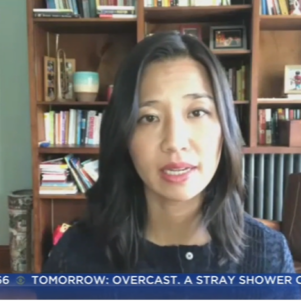Lawmakers Want End-Around-Parents For Teen-Agers To Get Anti-HIV Preventative Pill
By State House News Service | June 28, 2017, 12:32 EDT

By Matt Murphy
STATE HOUSE NEWS SERVICE
BOSTON — Young adults would be able to consent without a parent’s permission to receive preventative treatment for HIV infection or vaccinations for sexually transmitted diseases, under a proposal that lawmakers say would remove barriers to care and reduce the spread of infection.
Massachusetts state Senator Julian Cyr and state Representative Jack Lewis, two newcomers to the Legislature this year, filed bills (H 3249/S 1186) that would expand the minor consent law for HIV prevention. The bills would also create a commission to study out-of-network insurance coverage for screening, treatment, and preventative services for sexually transmitted diseases and update laws to streamline access to HIV testing and care.
“To think that someone may not receive preventative treatment and care due to paperwork is absurd,” said Cyr, a Truro Democrat who has worked as an HIV test counselor and for the state Department of Public Health.
The bills had a hearing Tuesday before the Joint Committee on Public Health.
Cyr said that there are 50,000 new HIV infections in the United States every year, 20 percent of which are found among teenagers under 18. The federal Centers for Disease Control estimates that more than 62,000 young adults are living with HIV.
“These numbers are staggering, and what’s worse they’re preventable,” Cyr said.
Current law allows minors to consent to care without permission from a parent for treatment of sexually transmitted infections and HIV, but not for pre- or post-exposure treatments for HIV or for the human papillomavirus vaccine.
“Parental consent can be a barrier to reaching youth for preventative sexual health care,” said Northeastern University law professor Jason Potter.
Lewis said there was a disconnect in the fact that teenagers could seek a diagnosis or treatment for HIV without a parent’s consent, but could not access preventative services in the same manner. “We are now at the precipice of being able to prevent all new HIV cases within this decade, something people once thought was science fiction,” he said.
Pre-exposure prophylaxis, according to the CDC, is a preventative treatment method for people who are HIV negative, but at a high risk of contracting the virus. By taking a pill every day, the CDC says, PREP has reduced the risk of HIV infection in high-risk populations by up to 92 percent.
Both Cyr and Lewis said their bills would improve access to life-saving treatments and services for youth who may come from families where they are not comfortable talking with parents about their lifestyle and may avoid treatment because of that.
State Representative James Lyons, an Andover Republican on the committee, challenged the sponsors on that point.
“I’m really conflicted as to why we want to eliminate parental involvement at such a critical age,” Lyons said.
He noted that in recent years the Public Health Committee has come down on the side of raising the age to purchase tobacco to 21, which would be in line with alcohol and marijuana. “This really seems to be going in the opposite direction,” Lyons said.
Cyr said that unlike cigarettes, marijuana, alcohol or even tanning beds, which are available for a price on the legal market, “Sex, generally speaking, is not something that consumable in the same way.”
When Lyons tried to ask a follow-up question along the same lines, Senate co-chairman Senator Jason Lewis interrupted and tried to get Lyons to ask something different or allow the hearing to proceed.
Lyons suggested to Lewis “my questions occasionally make you nervous,” but Lewis said he was not bothered by Lyons’s line of questioning and only interested in keeping the hearing moving because dozens were waiting a turn to speak in the crowded hearing room.
Lyons finished by asking Cyr: “I think this is an instance of interfering with parental rights. Do you agree or disagree?” Cyr responded, “I disagree.”
The bill stems from a report written by the Getting to Zero Coalition, which was started by the AIDS Action Committee last year with a goal of eliminating all new infections and death from HIV, as well as the stigma attached to the disease.
Grainne Griffiths, policy coordinator for the AIDS Action Committee, said the group was eager to work with lawmakers to achieve goals of the legislation.
State Representative Evandro Carvalho, the House vice chairman of the committee from Boston, questioned whether the bill would set an age range for the consent expansion.
Cyr said it would probably apply most often to those between 16 and 18 years old, but said it could be difficult to try to predict adolescent behavior and set a minimum age.











